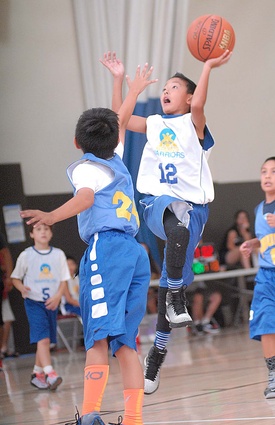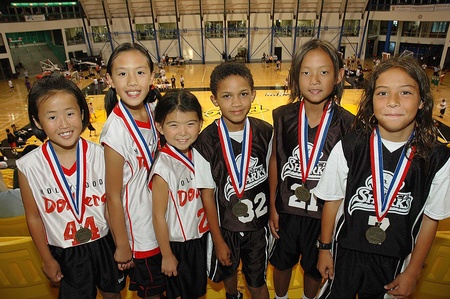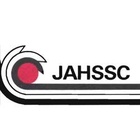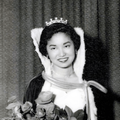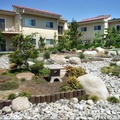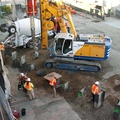About a year ago, a friend and I were boarding an elevator in a downtown high-rise. I pushed the button for the fifth floor.
My friend wanted to know how The Rafu Shimpo manages to gather the student’s names for it graduation issue every year. “It’s getting harder and harder every year,” I admitted. “School officials don’t always want to give us the names of students of Japanese ancestry.”
A man, who was already standing in the elevator, overheard us and piped in. “Why is it that Japanese American students do so well in school?”
My first thought was, “Hey, this isn’t your conversation.” He had pushed the third floor button, which meant I only had about seven seconds to responds. I wanted to say something clever, sarcastic. Six seconds, five, four… What did this stranger expect—a dissertation on the Issei work ethic? A case for natural selection? Three, two…It was now or never.
“Basketball!” I blurted.
The man nodded, caught off guard by my oblique answer, and left the elevator.
My friend, however, looked at me like I was insane. “Basketball?”
I explained that basketball to me is a euphemism for family. It’s the bonding, the unity, the carpooling. It requires time and commitment on the part of the parent in addition to a willingness to bring snacks for the team.
It’s the reason Chrysler made minivans and Gatorade comes in six-packs.
Among Japanese Americans, there are more basketball, baseball, and softball leagues, scout troops, martial arts classes, and church youth groups per capita than any other community. It’s just a theory, of course, but no one yet has proved me wrong.
In my early years at the Rafu, I interviewed hundreds of honor students who rattled off his/her affiliations—YBA, CYC, JAO, FOR1. Eventually, those initials led to BAs, MAs and Ph.D.s.
Of course, there are JAs who don’t overachieve but, for the most part, my friend had to agree there just may be a correlation between family-centered activities, like sports leagues, and doing well in school.
Our son J.P., began taking gymnastics at the age of nine and eventually made the competition team. He was at the gym five, sometimes six, days a week. During the fourth grade parent-teacher conference, his teacher remarked that the usually rambunctious J.P. was suddenly better behaved and more focused in class. His grades had improved even though he had to fit homework in between workouts and practices.
We traveled as a family to his competitions and soon were attending regional events.
J.P. is now 25 and lives about 40 miles away in Walnut, California. He gave up gymnastics long ago, but our relationship has blossomed into friendship. We are still close as a family.
The younger children, the twins, are 19. Even though friends, college, and part-time jobs take up most of their time, memories of those outings linger.
With Stephanie, now 34, it was dance recitals and softball games. Elena opted for the flag/dance team with the high school band, and I served as the Flag Mom. As for Joey…well, what else? Basketball!
Note:
1. Young Buddhist Association, Community Youth Council, Japanese American Optimists, Friends of Richard
*This article was originally published in Nanka Nikkei Voices, The Japanese American Family Volume IV, 2010. It may not be reprinted or copied or quoted without permission from the Japanese American Historical Society of Southern California.
© 2010 Japanese American Historical Society of Southern California


